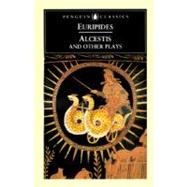
John Davie is head of classics at St. Paul's School in London.
Richard Rutherford is tutor in Greek and Latin literature at Christ Church, Oxford.
Richard Rutherford is tutor in Greek and Latin literature at Christ Church, Oxford.
Richard Rutherford is tutor in Greek and Latin literature at Christ Church, Oxford.
| General Introduction | vii | ||||
| Note on the Text | xxxviii | ||||
| Chronological Table | xlii | ||||
| Translator's Note | xlv | ||||
|
3 | (40) | |||
|
7 | (36) | |||
|
43 | (44) | |||
|
47 | (40) | |||
|
87 | (38) | |||
|
91 | (34) | |||
|
125 | (42) | |||
|
129 | (38) | |||
| Explanatory Notes | 167 | (17) | |||
| Bibliography | 184 | (3) | |||
| Glossary of Mythological and Geographical Names | 187 |
The New copy of this book will include any supplemental materials advertised. Please check the title of the book to determine if it should include any access cards, study guides, lab manuals, CDs, etc.
The Used, Rental and eBook copies of this book are not guaranteed to include any supplemental materials. Typically, only the book itself is included. This is true even if the title states it includes any access cards, study guides, lab manuals, CDs, etc.